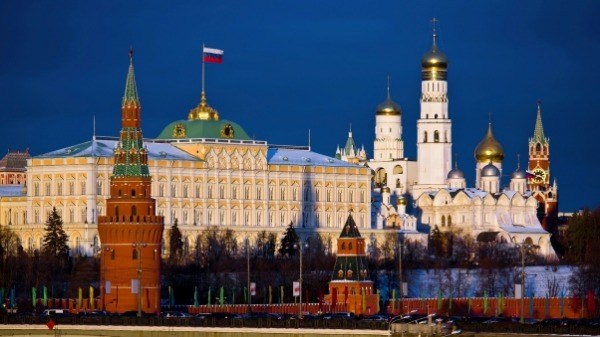Kremlin to pay for Russian oligarch’s escape from London Stock Exchange
The Russian government has decided to assist Russian billionaire Alisher Usmanov, who holds the 10th place on the Forbes list of wealthiest Russians ($12.5 billion), to delist MegaFon shares from the London Stock Exchange (LSE) and to buy out minority shareholders, finanz.ru reports.
Leading up to the buyback, scheduled for August 22, in which MegaFon plans to buy 20.8% of its own shares and depository receipts, the company has received massive investments from the largest government banks.
According to Russian news agency TASS, MegaFon has been issued two loans amounting to a total of 15 billion rubles from Gazprombank, the third largest Russian bank in terms of assets. More than half of Gazprombank’s financial basis comprises of government funds.
Out of Gazprombank’s 3.8 trillion rubles of client funds, 1.1 trillion belongs to Gazprom, and another 700 billion to the Russian Finance Ministry’s deposits, according to estimates by Sberbank CIB and Fitch.
Sberbank has agreed to provide another 80 billion rubles as a credit line, of which MegaFon has used 25 billion.
MegaFon is the third largest Russian cellphone operator by subscribers. Last year it lost a key foreign shareholder, the Swedish company Teila. In July it announced its departure from the London Stock Exchange, claiming that the need to take part in the government program to digitize the Russian economy will require an increase in debt, reduce the money flow, and possibly prevent MegaFon from paying dividends in future.
The decision, which was made after the value of MegaFon depository receipts lost 60% of their value over 6 years, reflects “the scale of the strategic changes which we have to make in order to transform MegaFon into a digital business at the very heart of the new digital ecosystem in Russia,” explains MegaFon executive director Gevork Vermishyan.
The Russian company’s departure from the LSE has been facilitated by the tightening of sanctions: the investors in blacklisted Rusal are effectively trapped – they are trying to convert their securities into local shares, where there is more liquidity, but it is an expensive and time-consuming process.
“It really makes no sense for Russian companies to list abroad under the current circumstances,” Ekaterina Ilyushenko, investment manager of Union Investment Privatfonds GmbH in Frankfurt, told Bloomberg. According to her, the new sanctions could lead to transactions on foreign exchanges being blocked, while there is a sharp decline in liquidity as foreigners flee.
